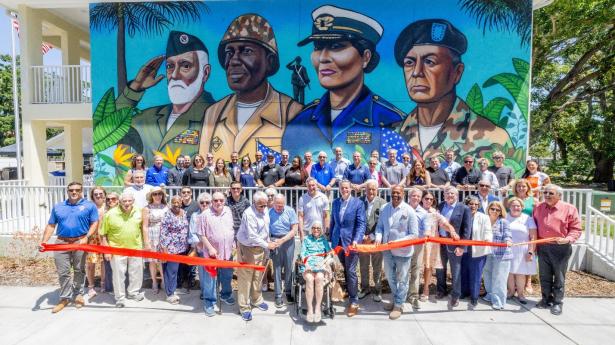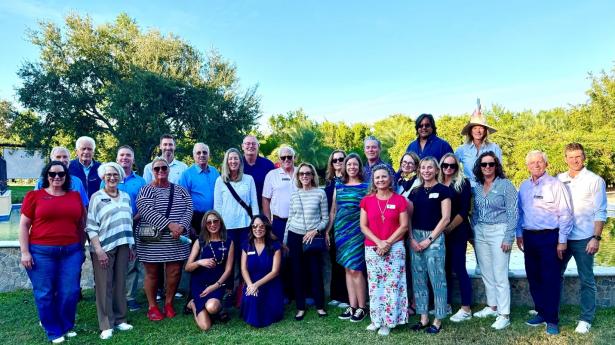Initiative Helps Once-Homeless Families Gain Financial Footing
Gulf Coast Community Foundation, United Way Suncoast Partner to Deliver First-of-Its-Kind Financial Sustainability Program for Struggling Families
Twenty local families that have experienced or been on the brink of homelessness are now on a journey toward financial self-sufficiency through a new initiative launched last month by Gulf Coast Community Foundation and United Way Suncoast.
Developed in collaboration by Gulf Coast and UWS, the Financial Sustainability Initiative is designed to help clients gain financial literacy and confidence while they build actual assets, including bank accounts, credit scores, and more. The initial class includes several once-homeless families that were stabilized and housed through the Family Haven Alliance, a product of Gulf Coast’s Homeless Children and Families initiative.
“For many families without access to the economy, there has been no economic recovery,” said Jon Thaxton, senior vice president for community investment at the foundation. “Our partnership with United Way Suncoast will provide families with the knowledge, tools, and access they need to gain a financial foothold and plan for their future.”
The new initiative, which launched in mid-May, focuses on three strategies: learning basic financial education, with behavioral coaching; building financial assets; and securing alternatives to pay-day loans and other high-cost debt. The long-term objective is to move families out of generational poverty by increasing their financial literacy and encouraging positive financial decisions. Gulf Coast is funding the initiative, while United Way leads operations.
“We looked regionally and nationally at existing financial-literacy programs, to see what works and what doesn’t,” said Mireya Eavey, Sarasota Area President of United Way Suncoast. “This initiative takes a new approach, seeking not only to increase knowledge of financial concepts, but also to change how our participating families value money and improve their decision-making process related to it.”
High-Incentive, Low-Barrier Approach
Eavey describes the Financial Sustainability Initiative as “a highly incentivized, low-barrier approach to financial literacy and mentoring, with a high coach-to-client ratio.” It also provides “a gateway to financial products that give these clients access to asset-building opportunities,” she adds.
That approach is possible thanks to additional community partners committed to the initiative. Key to the program’s launch has been The Salvation Army – Sarasota, which identified the 20 families in the first class. All of them currently work with case managers at The Salvation Army and receive housing assistance from the agency. The Salvation Army also hosts the program’s weekly workshops at its Community Center on Tuttle Avenue and provides additional character-building activities for families. Participants in future classes will similarly be referred by service partners including The Salvation Army and other agencies.
“When a parent’s hope is connected to opportunity, the quality of life of the family will change for generations,” said Major Ethan Frizzell, area commander of The Salvation Army. He added that the effort complements his agency’s commitment to housing security through peer sustainability groups.
Local financial institutions also have signed on to provide clients with access to banking that may not otherwise have existed for them. At the program’s second workshop, initiative partner IBERIABANK opened matched savings accounts for each of the 20 participating families.
“The average individual without a checking account will spend $40,000 over their lifetime on financial fees,” noted Eavey. “Access to bank accounts for these families may be the difference between building emergency savings and turning to high-cost debt.” As families proceed through the program, additional financial products customized to their needs will include affordable small-dollar loans and auto loans.
Further incentives and support help ensure clients can participate in weekly workshops and other meetings. They include dinner before the workshop as well as on-site childcare provided by Children First. At the first workshop, about 40 children were in attendance while their parents or guardians participated in class programming. Starting in July, children will take part in age-appropriate financial-education activities, extending the program’s impact.
Also critical to success for clients is intensive interaction with volunteer financial coaches. UWS trained 11 coaches for the first cohort and has recruited over 20 more prospective coaches for future classes. “Many of the financial-literacy programs out there aim for efficiency by providing a single instructor or coach for a large group,” said Eavey, “but we’re matching just two clients to each coach. This will allow for much greater interaction and help build trust, accountability, and motivation.”
Expanding the Safety Net
The Financial Sustainability Initiative is an extension of Gulf Coast Community Foundation’s Homeless Children and Families initiative, which has expanded and improved the coordination of social services for homeless children in Sarasota County Schools. Results include the creation of two emergency shelters for families and the Family Haven Alliance, a collaboration of seven agencies that work together to operate the shelters and provide master case management for client families.
The Financial Sustainability Initiative aims to fill a service gap that was quickly identified by Family Haven Alliance case managers. “Even with a roof over their heads, many of these families are just a health emergency, car breakdown, or job loss away from being back on the street,” said Gulf Coast’s Thaxton. “Our Board is focused on a long-term, systemic solution to the challenges faced by homeless students and their families, and this Financial Sustainability Initiative is a critical next step.” Almost half of the 20 families participating in the first class were Family Haven Alliance clients.
Over the next three years, Gulf Coast and the United Way aim to serve a total of 180 families through the initiative. But the program’s scalability, says Thaxton, means that success could lead to even greater numbers. “Research that Gulf Coast commissioned last fall shows that a quarter of Sarasota County households are paying more than they can afford for housing—with many paying over half of their income,” he says. “That burden leads to risky decisions to make ends meet. This initiative takes a new, custom approach to helping families in our community make better choices, build financial assets, and become self-sufficient.”



